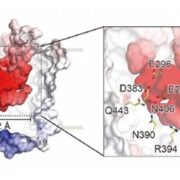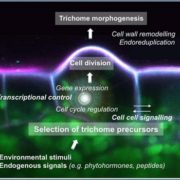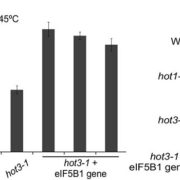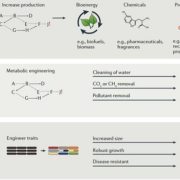
A plant protein structure from the MATE family, an important family of transporters ($)
The MATE (multidrug and toxic compound extrusion) family is found in all three domains of life. Proteins in this family are secondary transporters, functioning as sodium or proton/organic cation antiporters. This family has diverse functions in plants, including vacuolar sequestration of alkaloids,…

"So, why is what you do important?"
0 Comments
/
Telling others that what we do matters.
Guest post by Alyssa Preiser
Every holiday season, at least one relative may ask you the question "What do you do?". Your response - "I study plants" - is immediately followed by an awkward pause and either an unsure nod, as if they immediately understand…

Sources or ideas to get funded
What a glorious day when you get to know you have money to fund your lab! I remember clearly every single word on the notification letter I received the first time and the heavyweight lifting off my shoulders that wonderful day! I think I am not the only one.
It is very difficult to do science…

How Academics Survive the Writing Grind: Some Anecdotal Advice
Words of Wisdom from Those Who Publish (and Do Not Perish)
By Helen Sword
A PhD student approached me after a writing workshop to recount his tale of woe. “I write these messy, incoherent first drafts,” he lamented. “They’re absolutely awful! Then I have to work on them for hours and hours…

Turning science into business: how to use your gift of gab and communicate with industry
I am a PhD Student at the University of Adelaide in South Australia with a background in agricultural science and molecular biology. My PhD project focusses on seed coat mucilage biosynthesis in the genus Plantago for applications in food technology. I also have a passion for citizen science, science…
 https://plantae.org/wp-content/uploads/2017/09/Picture1-2.jpg
350
700
Mary Williams
https://plantae.org/wp-content/uploads/2021/10/ASPB-LOGO-Full-Name-RGB-1.png
Mary Williams2017-09-09 10:15:472018-06-01 16:01:15I don't know how she does it: Stories of plant scientists with children
https://plantae.org/wp-content/uploads/2017/09/Picture1-2.jpg
350
700
Mary Williams
https://plantae.org/wp-content/uploads/2021/10/ASPB-LOGO-Full-Name-RGB-1.png
Mary Williams2017-09-09 10:15:472018-06-01 16:01:15I don't know how she does it: Stories of plant scientists with children
Update: Plant Glandular Trichomes: Natural Cell Factories of High Biotechnological Interest
By Alexandre Huchelmann, Marc Boutry, and Charles Hachez
Abstract
Multicellular glandular trichomes are epidermal outgrowths characterized by the presence of a head made of cells that have the ability to secrete or store large quantities of specialized metabolites. Our understanding of the transcriptional…

Some Like it HOT: Protein Translation and Heat Stress in Plants
The ability to acclimate to high temperatures that are normally lethal is common to virtually all organisms on the planet. A short exposure to milder heat stress informs organisms that they should ready themselves in case they experience even warmer conditions. Acquired thermo-tolerance in plants is…

Opinion: Beyond editing to writing large genomes ($)
This is an era of rapid acceleration of our ability to both read and write genomes. Chari and Church point to a future in which making a small number of changes in a genome (editing) is supplanted by making hundreds or thousands or more of changes, essentially whole-genome editing. Basically, the authors…

